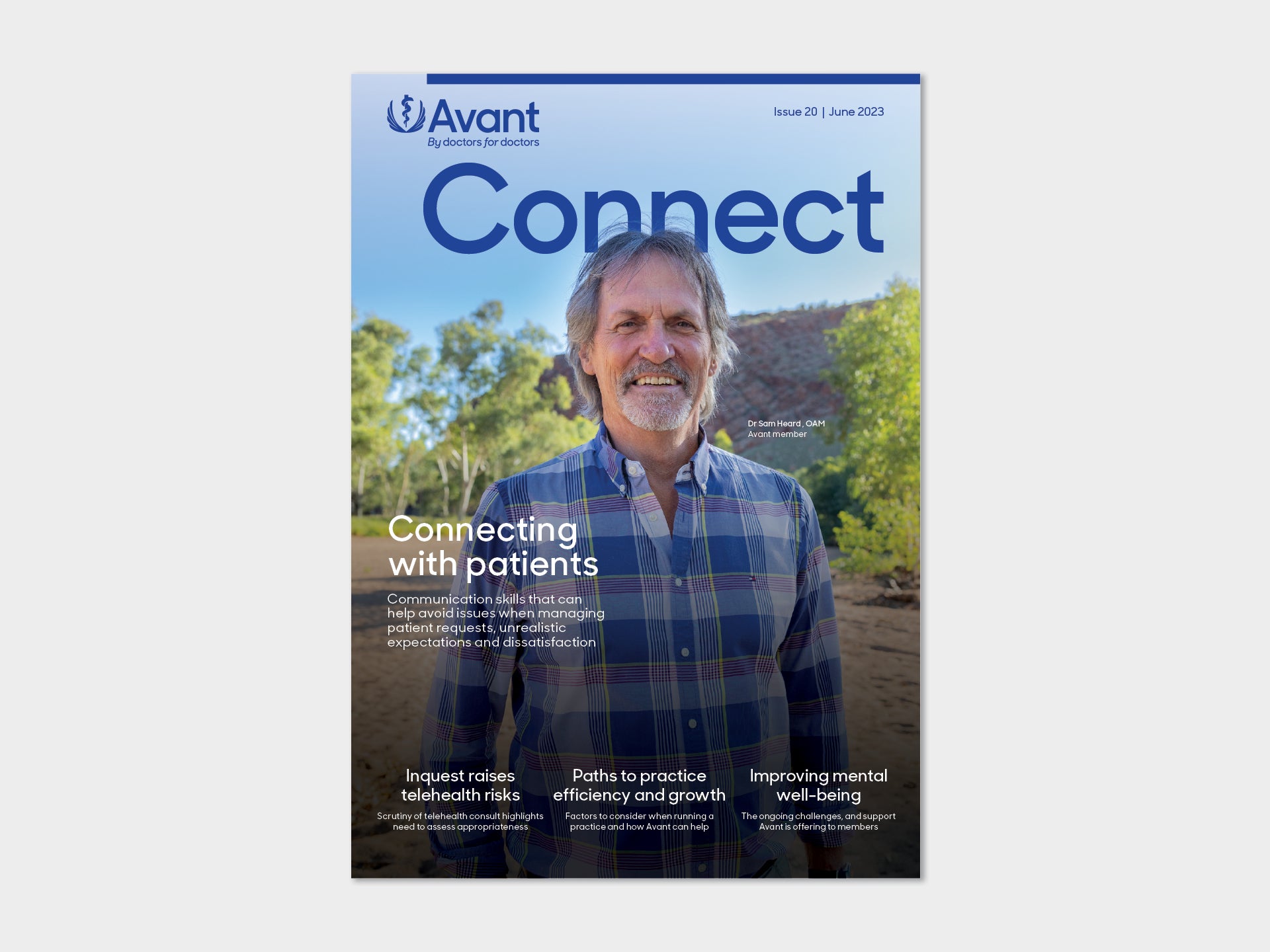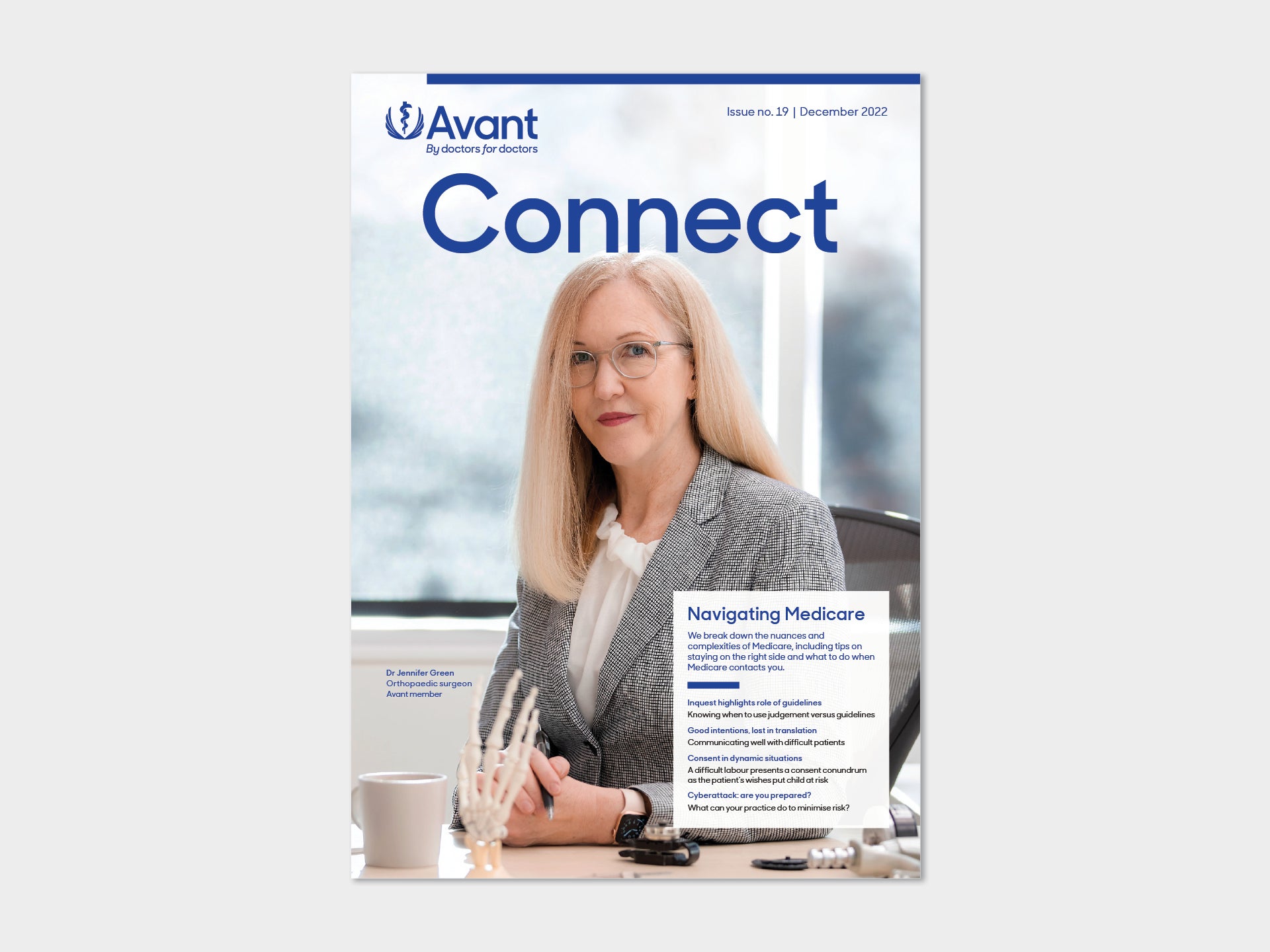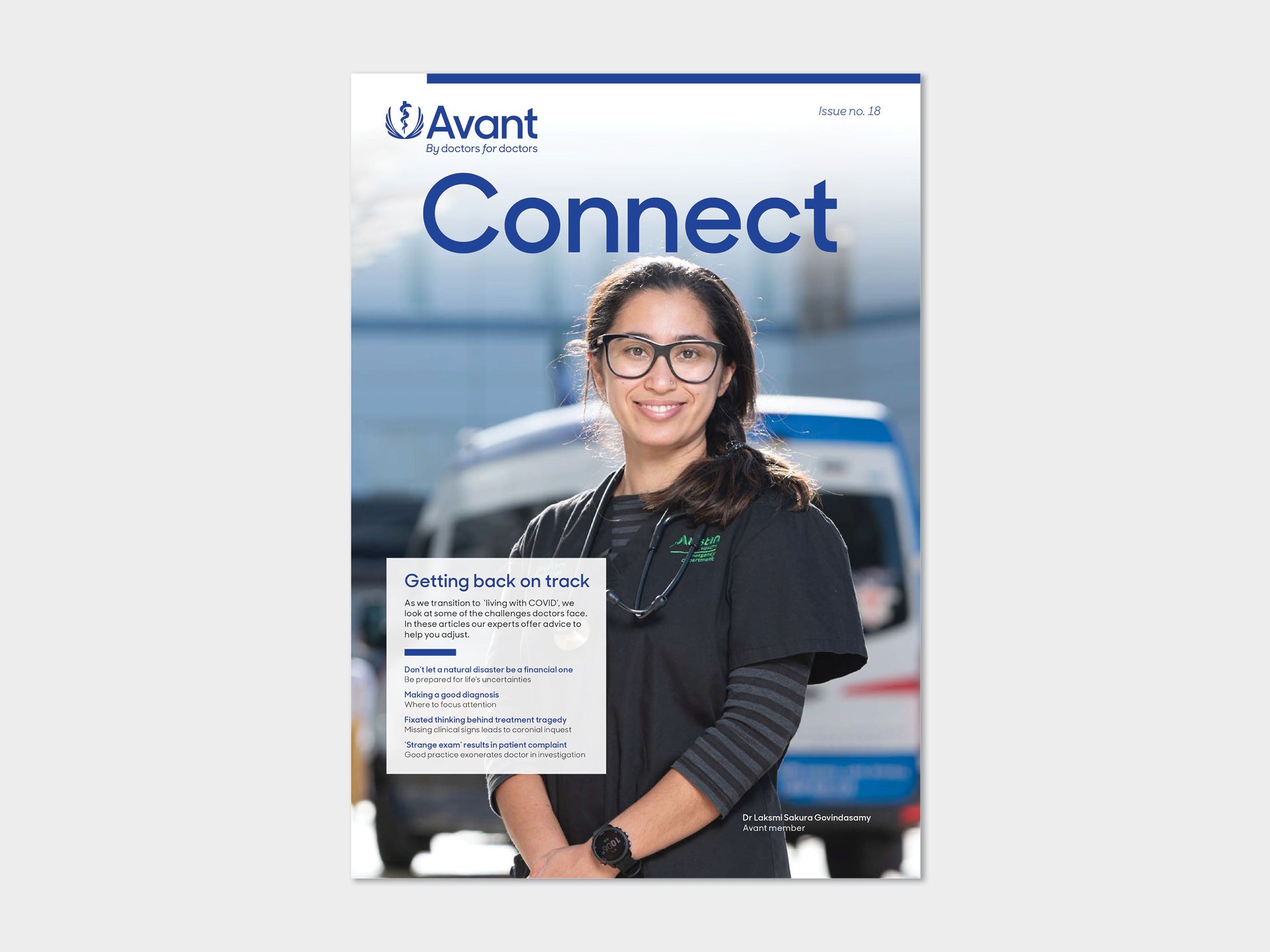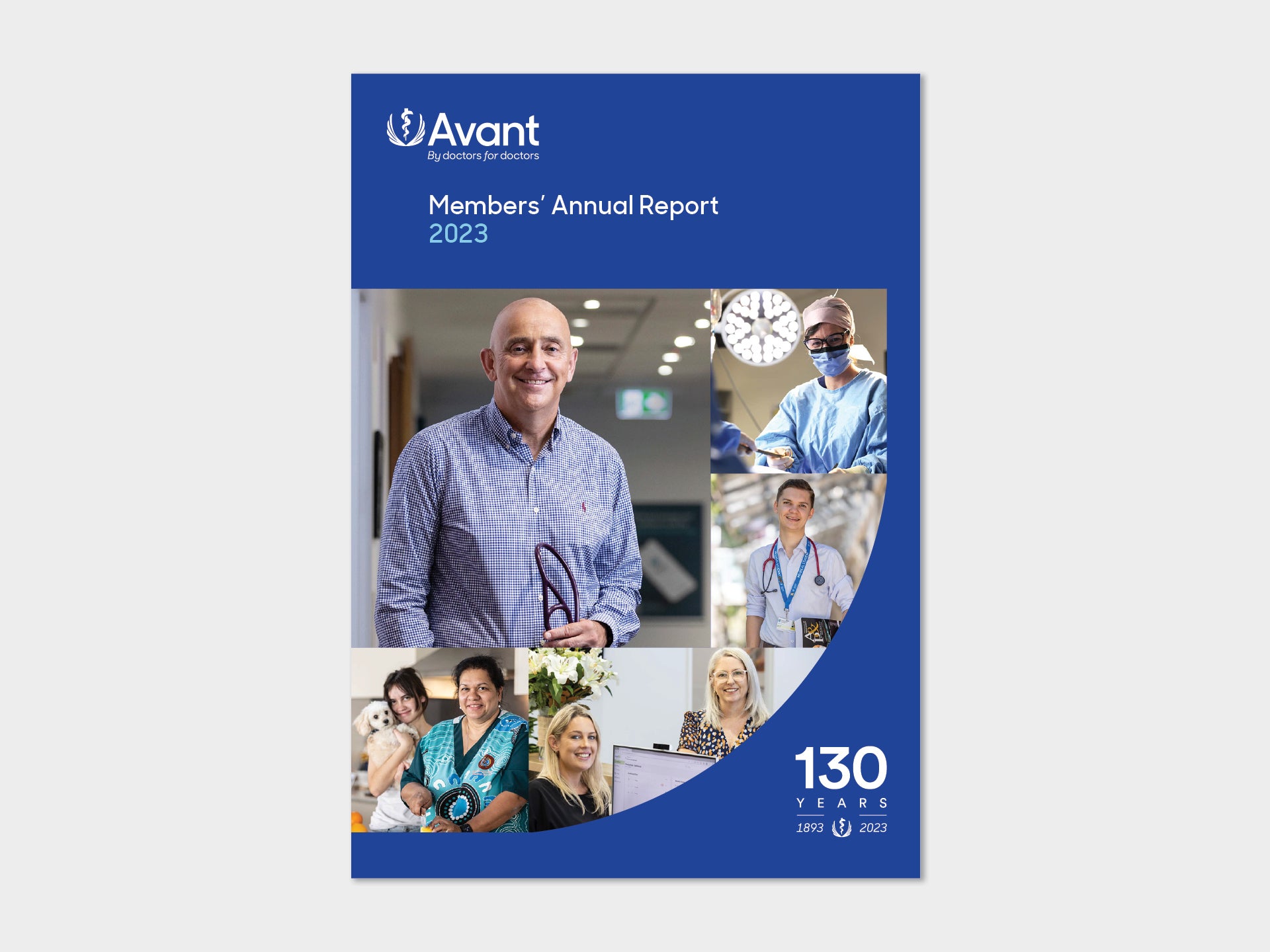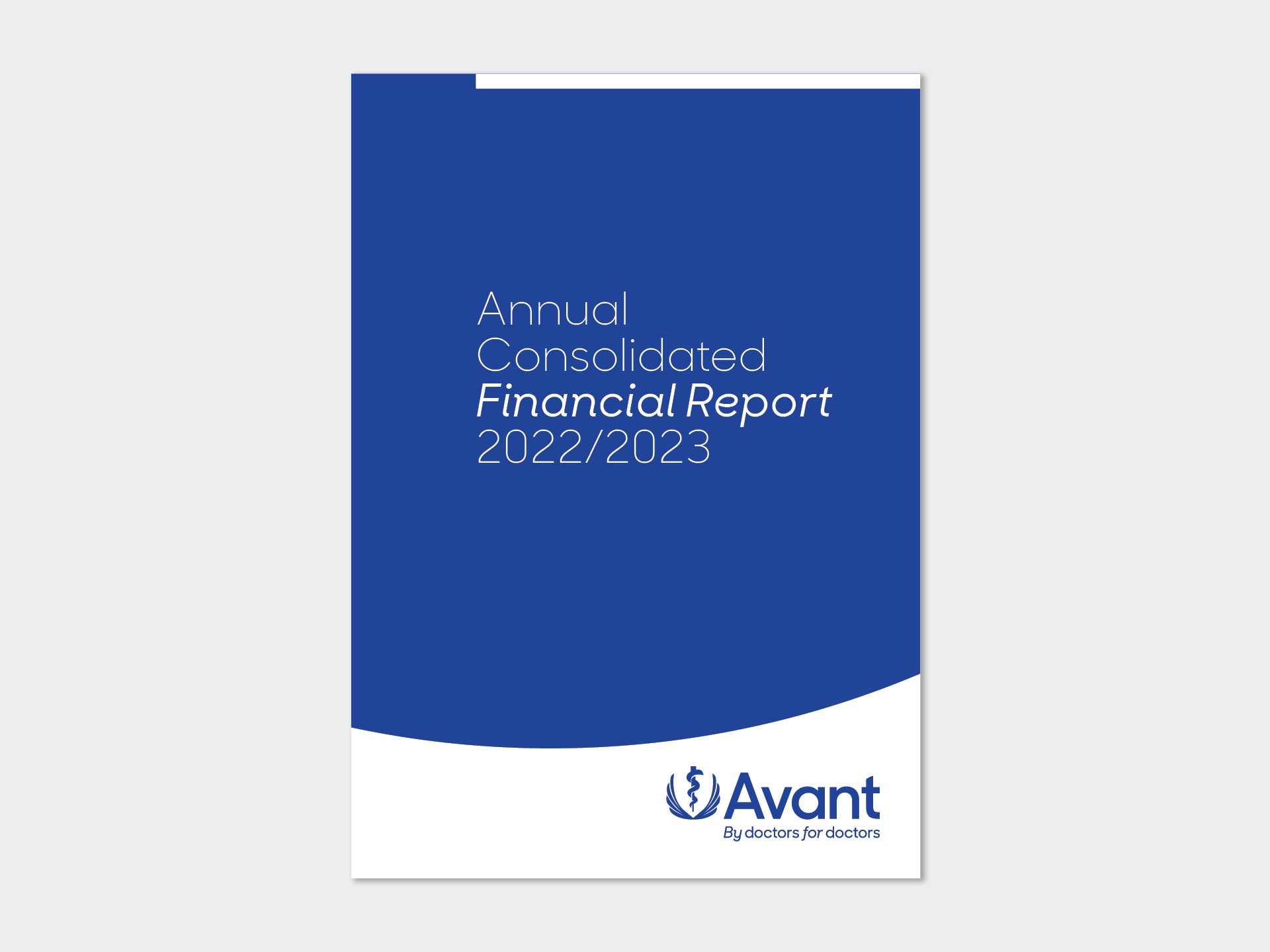Avant publications
Insights from our experts on a wide range of matters in Connect magazine, and Avant’s performance and activities in our annual reports.

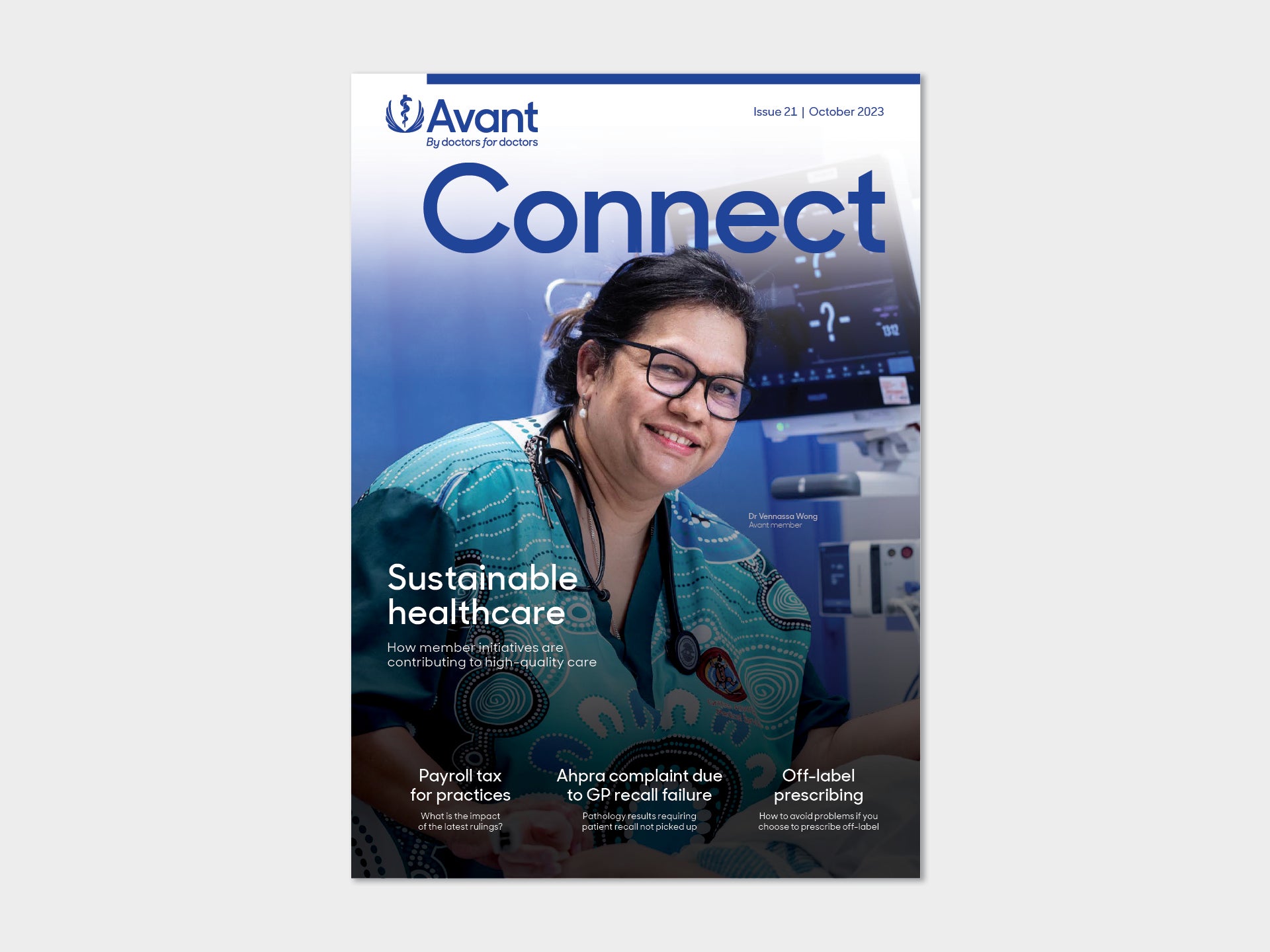
October 2023
Connect Issue 21
The latest issue of Connect, our magazine for Avant members, includes a section highlighting member activities that are making an important contribution to the sustainability of our healthcare system.
The cover story profiles GP member, Dr Vennassa Wong, and her commitment to delivering better outcomes for remote and rural communities including the health of First Nations Australians.
We also cover some recent cases on real-time prescription monitoring, a patient recall failure and a successful defence of advising against risky surgery. As well as providing insights on off-label prescribing, payroll tax and handling complaints.
